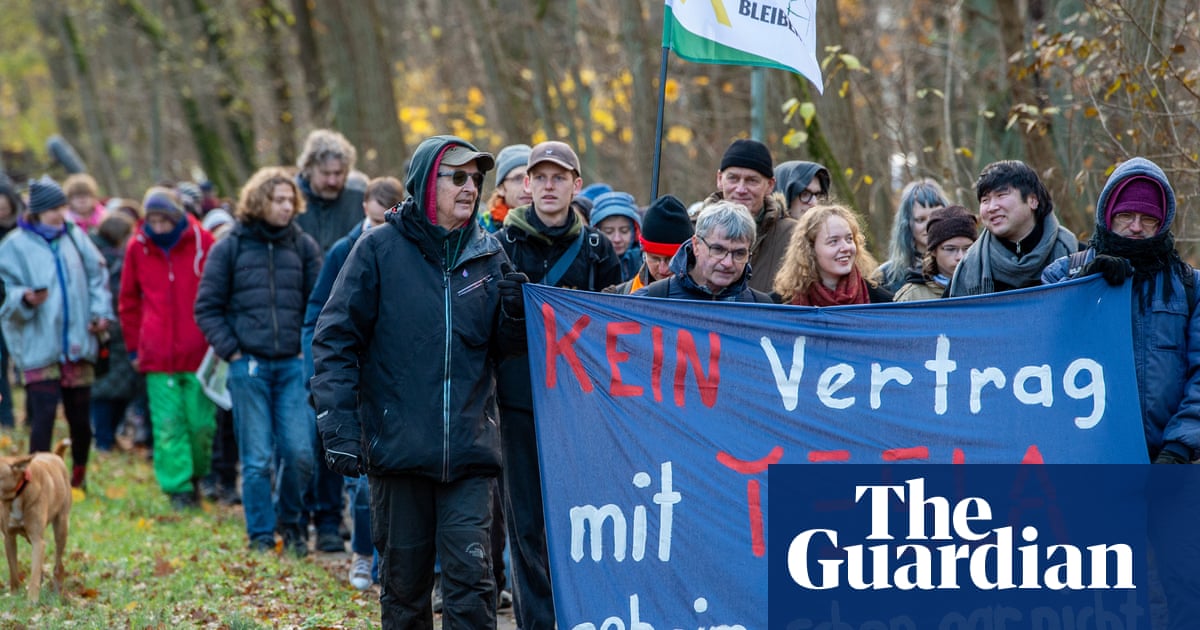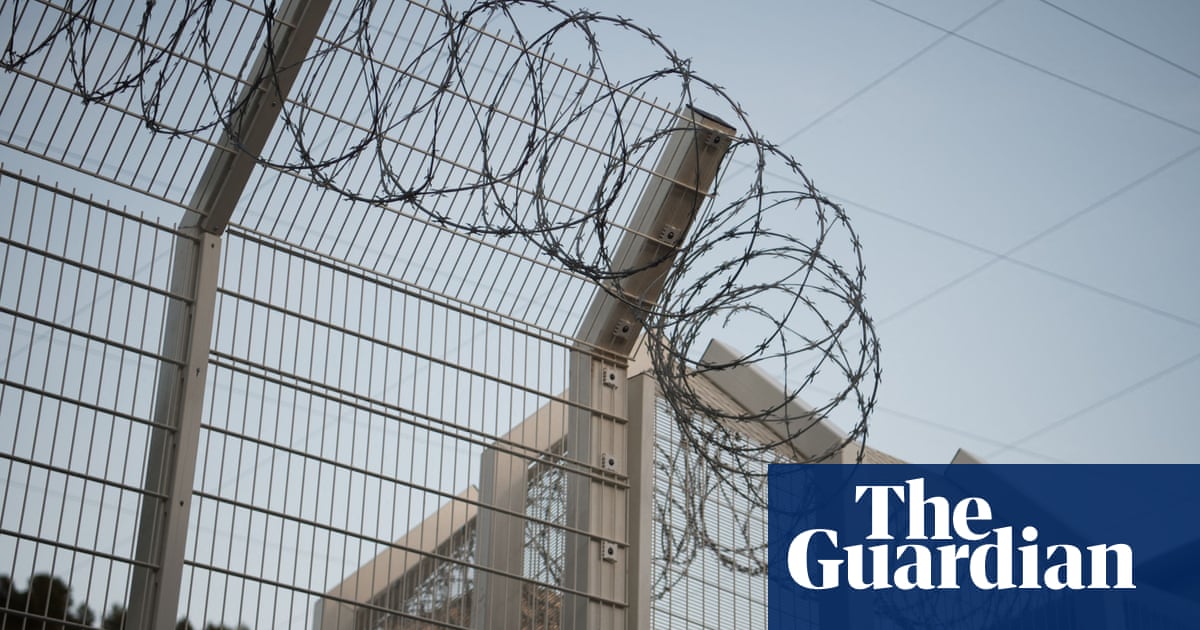Undocumented farm workers feel they’re being “hunted like animals”, they told the Guardian, as Donald Trump’s administration ramps up its crackdown on immigration.
Raids by Immigration and Customs Enforcement (Ice) have caused workers to lose hours and income, and forced them into hiding at home, according to interviews.
With many US farms reliant on undocumented workers to function, the US president and his administration have sought to reassure their owners in recent months. But Trump’s pledge to put farmers “in charge” of immigration enforcement alarmed workers’ rights advocates, who suggested they were being asked to surrender “their freedom to their employer” just to stay in the country.
“We really feel like we’re being hunted, we’re being hunted like animals,” said an undocumented farm worker in Ventura county, California, who requested to remain anonymous for fear of retaliation.
An Ice raid at a cannabis farm in the county last week resulted in a worker suffering severe injuries after falling from a greenhouse and later dying. The raids sparked protests, with federal agents using smoke canisters in a bid to disperse a crowd of hundreds of protesters.
“You can’t go out peacefully to do things, or go to work with any peace of mind anymore. We’re stressed out and our kids are stressed out. No one is the same since these raids started,” the worker added. “We are stressed and worrying if it continues like this, what are we going to do because the rent here is very expensive and it has affected us a lot. How are we going to make ends meet if this continues?”
Abigail Jackson, a White House spokesperson, said: “President Trump is a tireless advocate for American farmers – they keep our families fed and our country prosperous. He trusts farmers and is committed to ensuring they have the workforce needed to remain successful.”
The Department of Agriculture and Ice did not respond to requests for comment.
Most of the more than 2.6 million farm workers in the US are Hispanic, non-citizen immigrants. Around 40% of US farm workers are estimated to be undocumented.
Last month, the Trump administration called for Ice arrest quotas of 3,000 per day, up from 1,000. Following criticism of the raids, Trump claimed that changes were coming to how raids were conducted in agriculture, hospitality and food service, though a directive issued by Ice to stop targeting such sites was reversed.
Trump recently claimed the administration is looking into legislation to defer immigration enforcement on farms to farmers. “Farmers, look, they know better. They work with them for years,” he said at a rally in Iowa on 3 July.
The US president is “clearly” trying to give corporate leaders “as close to slavery … that he can give to them,” claimed Rosalinda Guillen, a farm worker from Washington, community organizer and founder of the non-profit Community to Community. “Giving workers an opportunity who are already here in this country the ability to work and support their families and stay in this country by giving up their dignity and their freedom to their employer? If that isn’t a definition of slavery, I don’t know what is.”
Trump has indicated that his administration could issue temporary passes to immigrant workers. “Even Trump consumes products being produced by farm workers, without realizing who produced these for him,” Lázaro Álvarez, a member of the Workers’ Center of Central New York and Alianza Agrícola, who has worked on a farm for more than a decade, said.
“They have really demonized us with the word ‘criminals’,” Álvarez said. “Despite the fact we are undocumented, we pay taxes. We are invisible to the government until we pay taxes, and we don’t receive any benefits.”
Teresa Romero, president of United Farm Workers, a labor union representing farm workers, said: “Everything that he’s doing to detain these workers is unconstitutional. They don’t have a document signed by a judge. They don’t have a court order. They want to just eliminate protections of farm workers who are currently here and have been working in the field for 20 to 30 years.
“These workers who have not committed any crime are being taken by people who are masked, are not wearing a uniform and don’t have a marked vehicle, so they are essentially being kidnapped.”
The impacts of these raids on farm workers will reverberate, Romero warned, from the communities being affected to consumers who rely on the work of farm workers.
“There’s a lot of fear of going to work,” said Dr Sarait Martinez, executive director of Centro Binacional para el Desarrollo Indígena Oaxaqueño (CBDIO), which works in the Central valley and on the central coast of California with Indigenous farmworkers. She added that family dynamics among farm workers have been changing due to the Ice raids, as parents will alternate between who goes to work and who stays home with the children, to ensure they aren’t both arrested, and separated from their children.
“This administration is targeting and just racially profiling anyone at this point that is brown, and it’s intimidating workers,” said Martinez. “There’s a broader agenda of this administration, who and how they want workers to be employed in the country, and I think we need to be aware of that, and we need to be organizing.”
Luis Jiménez, an undocumented farm worker in central New York for 21 years, said the raids have affected the mental health of many undocumented farm workers.
“A lot of people come here to work and their families back home depend on the work and the support of them, so it would be a tragedy if they were arrested and deported,” he said. “We don’t know who is going to report us or at what moment if we go out we will be reported to Ice because of the propaganda the federal government has been carrying out against the immigrant community.”
“There are many people who are racist but do not realize it affects them, too,” added Jiménez. “The immigrant community and migrant labor supports the agricultural industry and makes the economy grow. And if the economy is good, then those people are better off financially.
“And there are people who don’t care about that because of the simple fact of wanting to get immigrants out of this country.”
Back in Ventura county, the undocumented farm worker warned of far-reaching consequences should Trump press ahead with his crackdown. “If there are no immigrants, there is no food, there are no houses, no hotels, no people who do the work in restaurants,” they said. “Without us, food is going to be more expensive. We’re essential.
“We worked through Covid. We worked through the wildfires in Los Angeles. We get up at 4am every day. No one else is willing to work the eight-, 10-hour days the way we do. We’re not criminals. We’re hardworking people trying to give our kids a better life. And we contribute a lot to this country.”

 5 hours ago
4
5 hours ago
4

















































